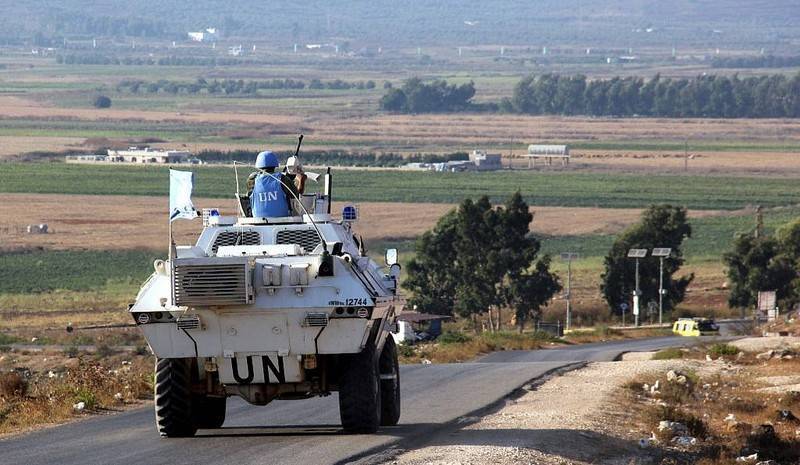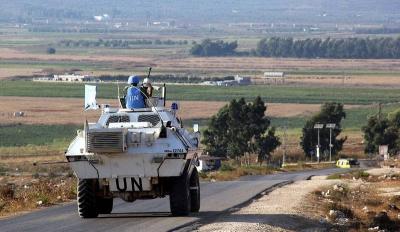Lebanon is looking forward to the extension of the international peacekeeping forces operating in southern Lebanon (UNIFIL) at the end of this August, without any changes to their mission. Lebanese officials have received reassuring signals regarding the intention of the United Nations Security Council to extend these forces for another year, believing in “the importance of the role they play in maintaining stability in the south, in implementation of Resolution 1701.”
On the eve of the expiration of UNIFIL's mandate at the end of the month, an informed official source revealed to "Asharq Al-Awsat" that the Lebanese Ministry of Foreign Affairs has "instructed Lebanon's ambassador to the UN, Amal Mudallali, to submit a letter to the Security Council requesting a one-year extension." The source emphasized that "the presence of international forces in the south is evidence of Lebanon's belief in international legitimacy and that Lebanon remains under the attention of the UN and the international community."
In anticipation of this deadline, President Michel Aoun and caretaker Prime Minister Najib Mikati held meetings with the UN Special Coordinator for Lebanon, Joanna Wronecka, during which she updated them on the ambiance of the briefing by UN Secretary-General Antonio Guterres to the Security Council regarding Resolution 1707. Sources from the presidential palace indicated that President Aoun "received positive feedback from the atmosphere of the Security Council meeting held in July."
The sources confirmed to "Asharq Al-Awsat" that “the atmosphere at the Security Council was positive, with a reaffirmation of UNIFIL’s continued presence in southern Lebanon, as it serves as a guarantee for security along the borders with occupied Palestine. This security is considered (by the UN) a model for the missions carried out by international peacekeeping forces worldwide, which must be maintained through the continuation of UNIFIL."
The Security Council reviewed the positives and negatives accompanying the work of the international forces in its meeting held on July 21 at its headquarters in New York and addressed the violations occasionally faced by its personnel. The sources did not hide that “the UN Secretary-General's briefing noted that there were observations on civilians obstructing UNIFIL patrols to limit their movements and harassing them and occasionally confiscating some of their equipment.”
The Security Council “demanded an end to these violations and enhanced cooperation with the Lebanese Army, which is relied upon in this regard, reassuring the countries participating in UNIFIL and encouraging them to remain in Lebanon.” The UN Special Coordinator for Lebanon, Joanna Wronecka, announced after her meeting with Prime Minister Najib Mikati two weeks ago that she updated him on the substance of the Security Council meeting, where developments in Lebanon were discussed. She stated: “I can say that the atmosphere in the Security Council was positive.”
An informed source close to Mikati expressed confidence that the Security Council would extend the mandate of the international forces for another year, stemming from the council’s commitment to the stability enjoyed by the south and the continued cooperation between the international forces and the Lebanese Army. He emphasized that Lebanon "is committed to the role played by the UN in terms of ensuring Lebanon’s security and supporting the army in its national tasks, whether internally or along the borders, especially at the southern borders."
The UN's operations in Lebanon began under Resolution 425, issued by the Security Council in 1978, to affirm Israel's withdrawal from Lebanon, restore international peace and security, and assist the Lebanese government in regaining its effective authority in the region. The mission was modified twice as a result of the Israeli invasion of Lebanon in 1982 and in 2000, after the Israeli army withdrew from areas it had occupied in the south. However, after the July 2006 war, the Security Council strengthened these forces through Resolution 1701 and assigned them other tasks, the most important of which are monitoring the ceasefire between Israel and Hezbollah, supporting the Lebanese Army, and helping in the delivery of humanitarian aid to civilians.
The annual extension of UNIFIL appears inevitable in the absence of factors necessitating the termination of its role. Former Lebanese ambassador to Washington Dr. Riyad Tabbarah noted that “there are no developments on the Lebanese-Palestinian border that warrant its withdrawal or modification of its mission.”
He explained to "Asharq Al-Awsat" that these forces "are still operating pursuant to the provisions of Resolution 1701, and any modification would require developments directly affecting the interests of major powers, which would then decide whether to amend its operational rules or send additional forces with broader mandates." Regarding whether some violations against UNIFIL patrols could impose a different international response, Tabbarah stressed that “the provocations these patrols face are merely disturbances stemming from disputes with Hezbollah, which sends messages through civilian residents.” He remarked: “These are limited disputes that can be seen in conflict areas where international forces are present around the world.”




